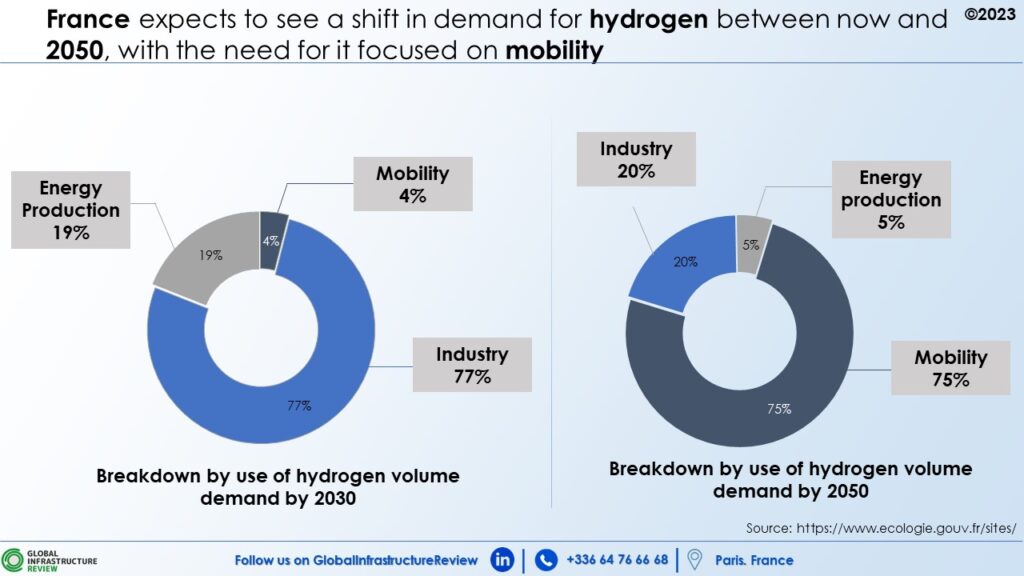France has set forth an ambitious plan to revolutionize its energy landscape, particularly focusing on developing hydrogen technologies.
The recent announcement underscores the country’s determination to decarbonize its heavy industry and a significant portion of its transportation sector. This move comes after the allocation of 9 billion euros in public funds in 2021 to bolster the emerging hydrogen sector, indicating a significant commitment from the government.
It is worth nothing that the global hydrogen market is predominantly industrial, with hydrogen serving as a crucial component in processes within the oil and chemical industries.
Currently estimated at 60 Mt globally, the industrial hydrogen market in France accounts for nearly 1 Mt.
However, more than 95% of this hydrogen is produced from fossil fuels, emitting approximately 11.5 Mt of CO2 in the country, contributing to around 3% of national emissions.

To address this, France is eyeing the potential of decarbonized hydrogen production through advanced electrolysis technology. By separating water molecules into hydrogen and oxygen through electricity, this method offers a decarbonized alternative, particularly if the electricity used in the process is derived from renewable sources. This marks a significant shift as hydrogen, once a purely industrial product, could become a decarbonized natural resource.
The roadmap for hydrogen development in France is structured around three key axes: industry, mobility, and energy.
France aims to produce the equivalent of 6.5 GW of decarbonized hydrogen by 2030, with a heightened target of reaching 10 GW by 2035. The projects already underway have secured 2.5 to 3 GW of electrolysis capacity, generating around 8,000 direct jobs, according to official documents.
France’s commitment to hydrogen is further fortified by assurances at the European level, ensuring that hydrogen produced from nuclear energy will enjoy the same benefits as that derived from renewable sources. The government has also launched a 4-billion-euro support mechanism to produce decarbonized hydrogen, using “contracts for difference” awarded through competitive bidding.
This financial incentive aims to bridge the current cost gap between green hydrogen and fossil-based hydrogen, ensuring the competitiveness of decarbonized hydrogen over the next decade. France’s decisive steps in embracing hydrogen as a clean energy solution not only align with its renewable energy goals but also position it as a leader in sustainable technological advancement.